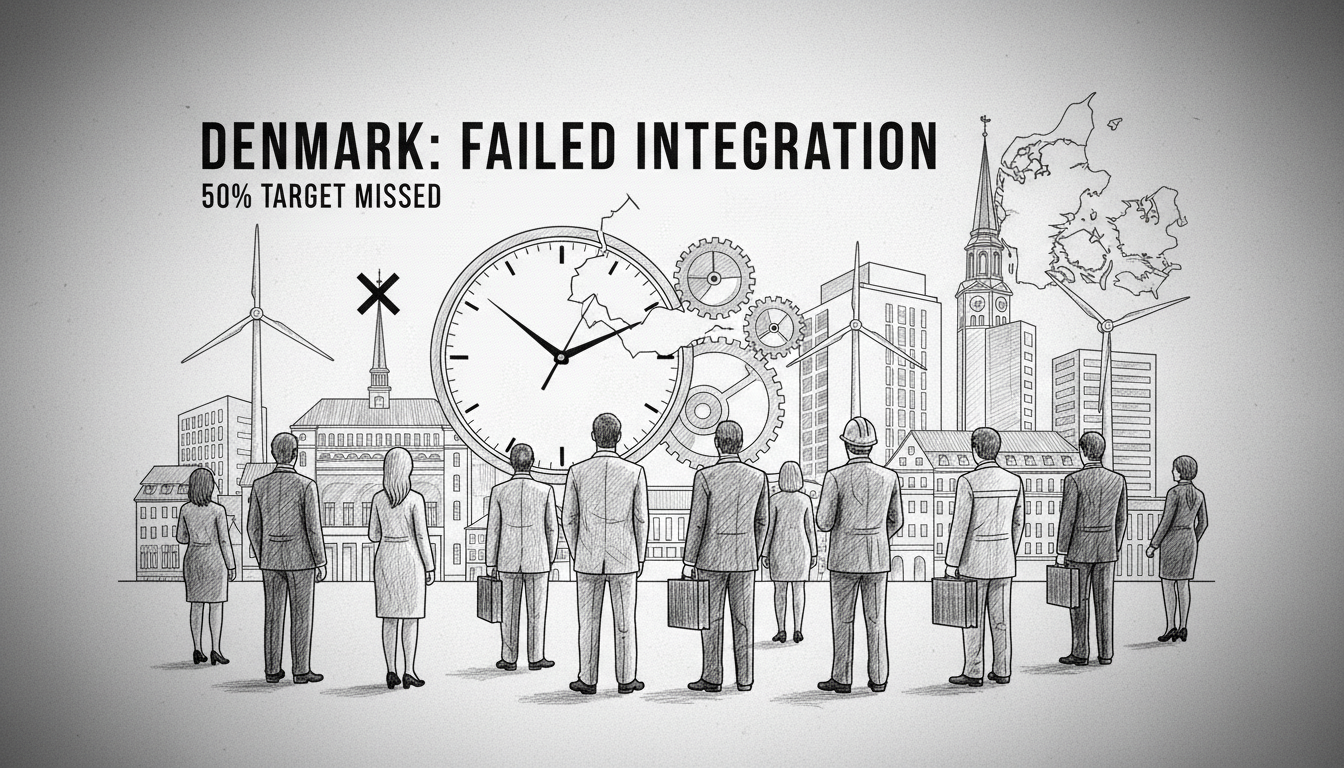Danish authorities face sharp criticism for failing to meet legal deadlines for refugee integration services. The National Audit Office revealed that only half of job-ready refugees receive mandatory business-oriented offers on time. This systemic failure impacts Denmark's labor market strategy and economic growth potential.
Government auditors delivered a medium-level criticism to the Immigration and Integration Ministry. They found the ministry provided insufficient support to municipalities. Local governments also received similar criticism for their handling of integration law requirements.
The integration law mandates specific timelines for refugee services. Job-ready refugees must receive company-focused offers within one month of assessment. They should get subsequent business-oriented services within six weeks. Current compliance rates stand at just 50% for initial offers and 29% for follow-up services.
This audit covered a multi-year period from late 2021 through late 2024. The findings highlight persistent challenges in Denmark's integration system. Business leaders express concern about missed opportunities in Copenhagen's commercial districts and the Øresund region.
Integration failures carry economic consequences for Danish companies. Businesses in Copenhagen and Aarhus face skilled worker shortages. The manufacturing and renewable energy sectors particularly need qualified employees. Companies like Ørsted and Vestas could benefit from properly integrated refugee talent.
Denmark's integration model traditionally emphasizes rapid labor market entry. The current system struggles with implementation despite clear legal frameworks. This affects both refugees and businesses seeking skilled workers.
The audit findings come during ongoing discussions about Denmark's labor needs. The country faces demographic challenges and needs foreign workers. Proper integration represents both a social responsibility and economic necessity.
What happens next? The ministry must address these compliance issues quickly. Municipalities need better coordination and resources. Businesses await improvements to access this potential workforce. The situation requires urgent attention from Copenhagen policymakers.
Danish integration services need structural improvements. The current performance levels undermine both refugee opportunities and business competitiveness. This affects Denmark's position in global renewable energy markets and broader economic performance.

